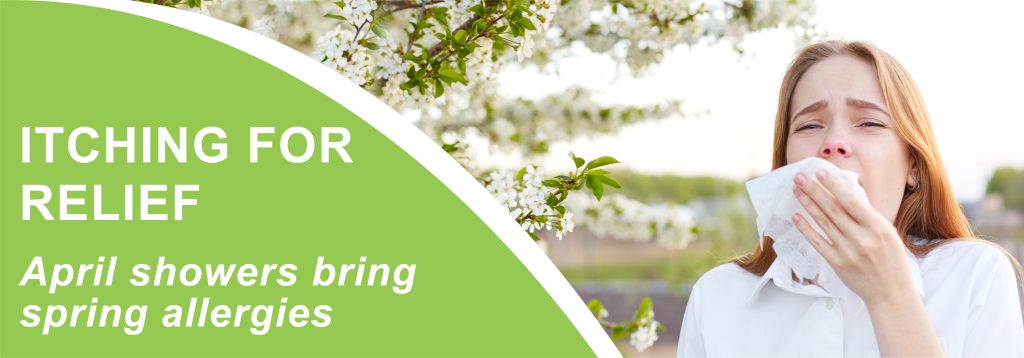Itching for Relief
March 18, 2021
By: Trinity Health IHA Medical Group
Categories: Pediatrics (Children's Health )
April Showers bring spring allergies.
By Susanna Lin, MD
It’s that time of the year – trees and gardens “wake up” from hibernation with beautiful blooms and scents filling the air. They also bring runny noses, itchy eyes, and scratchy throats. It is allergy season. Allergies can (and do) happen all year, but for many people, when spring starts and trees and grass grow they start feeling symptoms.
Common environmental allergies can be due to dust mites, animals, pollen, grass and trees, just to name a few. Each of these allergies can happen more often in different times of the year. Grass and trees are often bothersome to people in spring, whereas pollens are in the late summer. You may experience dust mite allergies inside, all year round.
When symptoms are bad, many people turn to medications for help. There are some things you can try prior to using medications. For example, for dust mite allergies you can try using dust mite covers on your pillow and bed. Staying in air conditioning may help symptoms when the pollen count is high. You can also flush out the allergens by using a netti pot (follow safe-use guidelines) or saline eye drops. An evening shower before going to bed can also be helpful in alleviating allergy symptoms.
Masks aren’t just for protecting against viruses, try wearing your mask at times when your allergies are the worst (mowing the lawn, spring gardening). The mask could help keep your nose clear of irritating particles.
If you’re ready for medications, decongestants and antihistamines can be the most helpful to allergy sufferers. Decongestants help relieve nasal congestion symptoms once they have started. Antihistamines block the histamine reaction and help prevent symptoms from happening. They often must be taken several days to weeks prior to exposure to the allergens. Nasal steroids can also help decrease nasal congestion symptoms and work right at the source of the congestion. For itchy, water eyes, try allergy eye drops.
If you are having allergy symptoms that are not improving with over the counter medications, it is time to see your primary care doctor to discuss next steps. There may be another reason for your symptoms or other medication or treatments to consider. Allergy testing may also be needed to figure out what specifically you are allergic to so that you can avoid the allergen.
This article was originally published on March 20, 2015, and was updated March 2021.




